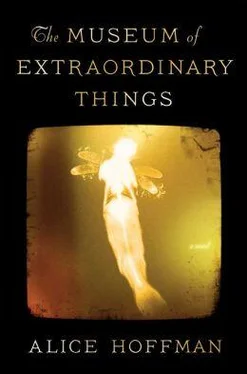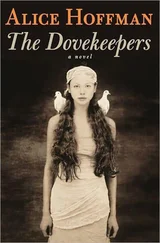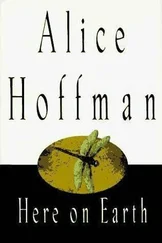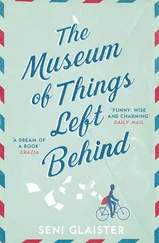I took two “official” photographs, then managed to take another when the family wasn’t posed and were moving apart from one another. Juliet seemed in a hurry to be gone from that setting. In that photograph, Harry Block is the only one staring directly into the camera. When I look at that image now, I think he understood that he had been seen in some deep way, and that everything he was at his core had been caught on film. I did have a moment where I wondered if I’d stolen not only his watch but his soul.
I quickly packed up and made my way through the crowd. My hatred of those in attendance was simmering, and I suppose I was a thug if thugs are those who come uninvited to a party with murderous intentions in their hearts, acted upon or not. How was it that a terrible son such as I was able to feel such vengeance for what this class of people had done to my father? I detested how they’d caused his fingers to bleed and how they’d stripped him of his pride.
Harry Block stopped me in the hallway. The room was shaped like a teardrop, the plaster walls painted a glossy peacock blue. We stood on the enormous Oriental rug, stitched by laborers for pennies, causing some of the workmen to go blind from the smallness of their stitches and the closeness of their work. It was a beautiful creation, one I despised.
“You! Wait a moment.”
The camera stand was over my shoulder. If I hoisted it, it could be used as a weapon. Moses Levy would have despaired had he known of my willingness to consider a piece of equipment meant to illuminate beauty to be equally useful in an act of brutality.
“Did you hear me?” Block called.
I turned and gazed at him directly, my enemy.
“Did I get your name?” he asked. “I was told you work for the papers.”
“I’ve got your name,” I answered. I barely recognized my own voice, for it carried a flat, dangerous tone. “Harry.”
My companion was accustomed to being called Mr. Block, particularly by servants, which he clearly considered me to be. He narrowed his eyes and gazed fully into my face to see if he could conjure up some remembrance of who I might be. I could tell he saw an utter stranger. I was nothing to him after all.
I reached into my pocket and pulled out the watch. I quickly flipped it open to check the hour. “Time for me to go,” I informed him.
He hadn’t recognized me, but he knew the timepiece well enough. He looked at me again, even more puzzled. All the same, he didn’t try to stop me as I made my way out of the mansion. I went through the darkened streets, my anger burning through me. But after twenty blocks, it was gone. It vanished and left me hollow. I thought of the grave expression on my father’s face when I’d tossed the stolen watch on the table. He hadn’t known me any more than Harry Block did now. From that time on I was a stranger to my father and to myself. I wished I’d never taken the thing in the first place. I wished I could have returned it. But like it or not, the watch belonged to me now, and every day I carried it, it served to remind me of who I had become.
ONE FUNERAL after another was held, at Mt. Zion and Baron Hirsch and Evergreens Cemeteries. Rain and drizzle dashed the hallowed ground at many of the private funerals, held one after the other. When Mayor Gaynor and Governor Dix both refused to take responsibility for the fire, neither one visiting the site of the disaster, it seemed no official was willing to stand up for those who had been so terribly wronged. The families of the dead were aided by the Red Cross and the Hebrew Burial Association to ensure that burial plots could be purchased for the girls whose families could not afford plots in the muddy cemeteries of Staten Island and Brooklyn and Queens and horse-drawn hearses hired. The girls themselves, having been paid only six or seven dollars for a workweek of sixty hours or more, had earned too little to pay for their own funerals. The corrupt politicians still ran the town, despite the work of Franklin Delano Roosevelt, who as a New York legislator had done his best to bring the Democratic Party back to reason.
A sea of black umbrellas preceded waves of endless sorrow. Eddie positioned himself at the edges of such gatherings, his cap pulled down, his camera slung over one shoulder. He photographed the funerals from a distance, stationing himself behind a stone wall or under a wide-limbed copper beech, doing his best not to bring attention to himself while keeping his lens free from raindrops with a soft rag. The world carried the scent of lilacs and damp earth, and the sky was a dove-colored, so laden with clouds it seemed that heaven touched the ground.
Eddie waited for the end of each service before showing the dime-store photograph of Hannah Weiss to mourners who filed by. Most of those he approached were mistrustful of his presence, so far inside their own grief he often had to repeat himself to be understood. He spoke in English and Yiddish, as well as the broken Russian he remembered from his boyhood. Please excuse the interruption, but this girl is still missing. Perhaps you knew her? Did you see her on the day of the fire? Or the day before? Maybe recently? One young woman who was lamenting her own losses had sputtered, “Who do you think you are asking questions here?” before stalking off. Another time Eddie had been chased off the premises when relatives of the deceased noticed his camera and charged after him, fiercely protective of their grieving family’s privacy. They had thrown rocks and called him a ghoul. Perhaps he was, but the photographs of the distraught, raging mourners were among the best he’d ever taken. He added the prints to his wall of sorrow, which now ran the length of his loft, ravaged souls scattered in black and white, the exalted and the earnest, the mourners and the mourned side by side.

On the fifth of the month, New York City held a mass funeral for the unidentified victims of the fire, a procession that would take six hours to complete. The morning’s drizzle would become a driving rain, but a sea of more than three hundred thousand mourners holding black umbrellas lined the street to pay their respects to those who had lost their lives. Guards had been stationed around the homes of the owners of the factory, for there was talk of retaliation. The survivors murmured to each other in remembrance of those they had lost, girls who had jumped holding hands, lovers who had kissed before the flames engulfed them, lives burning up like cinders as the owners and supervisors were skulking over the melting tar of the roof, making their way onto a neighboring rooftop. The deceased were put to rest in black coffins covered with shrouds—each had a silver plate upon it, stating that they were the unidentified departed.
The International Ladies’ Garment Workers’ Union, begun in 1900 to protect working people from seventy-hour workweeks and wretched conditions, had met in long sessions, swelling the halls at Cooper Union, petitioning President Taft and the governor, John Dix, only in office since January of that year, for workers’ rights. The parade of mourners was more than just a funeral; it was a river of outrage. Carts transporting the dead were laden with flowers, pulled by huge draft horses draped with black netting. Thousands of mourners in black coats, the men in bowler hats, the women draped in black wool and velvet, followed the carts, including the members of the Ladies’ Waist and Dress Makers’ Union, Local 25, the union that had tried and failed to have sprinklers installed in the Triangle factory. The mourners carried black banners and garlands of roses. Signs carried by women’s union groups called out, AN END TO GRIEF. The city still smelled of smoke, and a gray film hung above them. It was April, yet it seemed another month entirely, more somber November in mood.
Читать дальше













